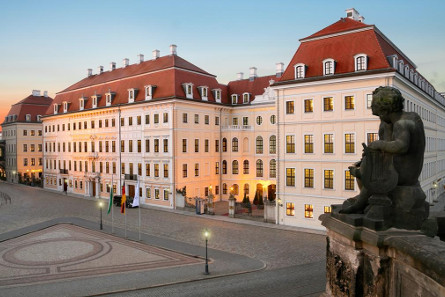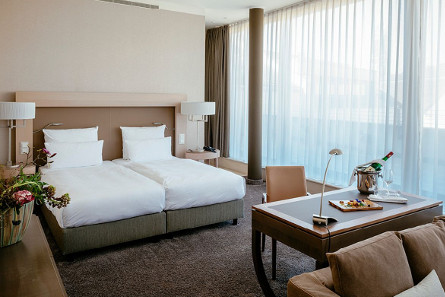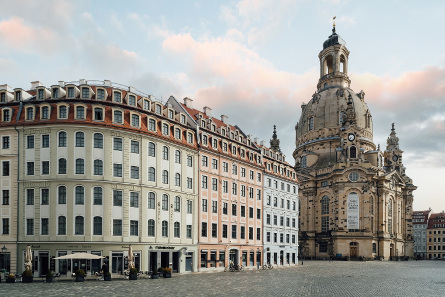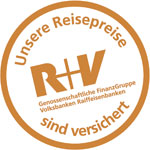Otello♪, G. Verdi, the 8.
The Magic Flute♪, W. A. Mozart, the 9.







from Tuesday 7 to Saturday 11 May 2024,
4 nights
Arrangement 31
Arrangement 31
Otello
G. Verdi
G. Verdi
At the age of 70, Giuseppe Verdi (1813-1901) created "Otello", one of his most famous works, based on the drama of the same name by William Shakespeare - "Othello, the Moor of Venice". The opera is set at the end of the 15th century in Cyprus, which at that time is ruled by Venice. Otello, lord of the island, and his wife Desdemona fall victim in the course of the plot to the vicious and infamous intrigues of Iago, who acts out of base motives. The premiere at the Teatro alla Scala in 1887 was an indescribable triumph for Verdi, who had not composed an opera for 16 years by then and had actually already retired. After Verdi had already worked successfully with the librettist Arrigo Boito, himself a renowned composer and writer, in a new arrangement for "Simon Boccanegra", the two musicians collaborated again in 1879. Verdi was enthusiastic about Boito’s opera text for "Otello" and began composing it. With "Otello", the composer treads new musical paths and breaks with the old schemes of arias, duets or recitatives. A continuous structure and coherent entities characterise Verdi’s grandiose and psychologically subtly staged mature work.
John Fiore - Vincent Boussard
Hrachuhí Bassénz, Gregory Kunde, Alexeij Isaev
Semperoper
The Magic Flute
W. A. Mozart
W. A. Mozart
W. A. Mozart (1756-1791) created a piece of music history with this unique stage work, which since its premiere in September 1791 has become one of the most popular and most performed operas worldwide.
When the theater and bon vivant Emanuel Schickaneder approached the financially and psychologically troubled composer in 1790 and presented him with a fairy-tale libretto, Mozart was immediately taken with it and added the masonic ideals and rites that were fashionable at the time. These gave the “Magic Flute” a completely different meaning and transformed the piece from a colorful magic pose into an almost testamentary appeal to humanity - entirely in the style of the spirit of the Viennese Classicism. Musically, this great German opera or Singspiel unites different styles such as opera seria, opera buffa and tragédie lyrique. Mozart’s genius united the French romance, the Italian aria and the German Lied to a fascinating kaleidoscope that inspires young and old alike. Popular arias from the "Magic Flute" such as “The Birdcatcher I am”, “Hell’s Revenge is boiling in my Heart”, or “This Portrait is Enchantingly Beautiful” are easily accessible to everyone. Goethe attested that this music alone would have provided a worthy accompaniment to his Faust.
When the theater and bon vivant Emanuel Schickaneder approached the financially and psychologically troubled composer in 1790 and presented him with a fairy-tale libretto, Mozart was immediately taken with it and added the masonic ideals and rites that were fashionable at the time. These gave the “Magic Flute” a completely different meaning and transformed the piece from a colorful magic pose into an almost testamentary appeal to humanity - entirely in the style of the spirit of the Viennese Classicism. Musically, this great German opera or Singspiel unites different styles such as opera seria, opera buffa and tragédie lyrique. Mozart’s genius united the French romance, the Italian aria and the German Lied to a fascinating kaleidoscope that inspires young and old alike. Popular arias from the "Magic Flute" such as “The Birdcatcher I am”, “Hell’s Revenge is boiling in my Heart”, or “This Portrait is Enchantingly Beautiful” are easily accessible to everyone. Goethe attested that this music alone would have provided a worthy accompaniment to his Faust.
Gaetano D’Espinosa - Josef Ernst Köpplinger
Tuuli Takala, Maria Perlt-Gärtner, Ofeliya Pogosyan, Joseph Dennis, Dimitry Ivashchenko, Ilya Silchuk
Semperoper
Concert of the Royal Concertgebouw Orchestra, the 10.
Klaus Mäkelä♪
Klaus Mäkelä
Exception, talent, Wunderkind. These are the first associations when the Finn Klaus Mäkelä (*1996) is described. For hardly any musical profession in the classical music scene is more associated with maturity than that of a conductor. Therefore, Mäkelä’s appearance on the stages of this world turns many things upside down. Young, thoughtful, lively and with an impressive presence, the conductor has dedicated himself to music. At the age of less than 30, he has reached the top of several renowned orchestras: chief conductor of the Oslo Philharmonic Orchestra, music director of the Orchestre de Paris and future chief conductor of the Amsterdam Concertgebouw Orchestra. Although he will not assume this post until 2027, he is already familiarising himself with the musicians as Artistic Partner. He can also be heard as a guest conductor with the Berlin Philharmonic, Vienna Symphony and New York Philharmonic.
The large footprints of his predecessors – von Karajan, Sir Solti, Barenboim, Järvi and Harding, to name but a few – do not seem to frighten him in any way. Rather, he wants to explore his own experiences and feelings through the music and, equally, to allow the audience to do the same. So Klaus Mäkelä is a conductor who is sure to make a big impact in the future!
The large footprints of his predecessors – von Karajan, Sir Solti, Barenboim, Järvi and Harding, to name but a few – do not seem to frighten him in any way. Rather, he wants to explore his own experiences and feelings through the music and, equally, to allow the audience to do the same. So Klaus Mäkelä is a conductor who is sure to make a big impact in the future!
Kulturpalast
Hotel informations for Dresden 31


Taschenbergpalais Kempinski *****
The Taschenbergpalais was built in the 18th century by Augustus the Strong for his mistress Countess Cosel and will reopen in February 2024 after extensive renovation as the luxurious Grand Hotel Taschenbergpalais Kempinski Dresden *****. Located in the heart of the historic old town, you will stay in spacious and stylishly elegant rooms and suites in a regal ambience. The "Kastenmeiers" fish restaurant, including a sushi and oyster bar, and the "Palais" restaurant with classic international cuisine ensure your physical well-being. You can relax in the wellness area. The Semper Opera House is located directly opposite the hotel.


Steigenberger Hotel de Saxe ****
The Steigenberger Hotel de Saxe **** is ideally located next to the Frauenkirche in the heart of the city and only a few minutes walk from the Semper Opera House. You will be charmed by the elegance of its 185 well-equipped rooms and suites and by the view from the terrace of its restaurant, which serves both Saxon and international specialities. A wellness area with sauna and spa is also at your disposal.


Townhouse Dresden ****
Offering an ideal location next to the Frauenkirche in the heart of the city and only a few minutes from the Semper Opera, the Townhouse Dresden **** offers a unique atmosphere. The elegance of the nineteenth century is combined with modern facilities to create an amazing environment. It offers 95 rooms well equipped and you will be seduced by the stunning view to the dome of the Frauenkirche from the hotel bar at the sixth floor.
All-inclusive price per person for Dresden 31
Single room/ night
Taschenbergpalais Kempinski
1.880,- Euro
100-200,- Euro
Steigenberger Hotel de Saxe
1.440,- Euro
60-100,- Euro
Townhouse Dresden
1.220,- Euro
60-150,- Euro

The price includes
Overnights including breakfast, good opera tickets, travel cancellation expenses insurance.





